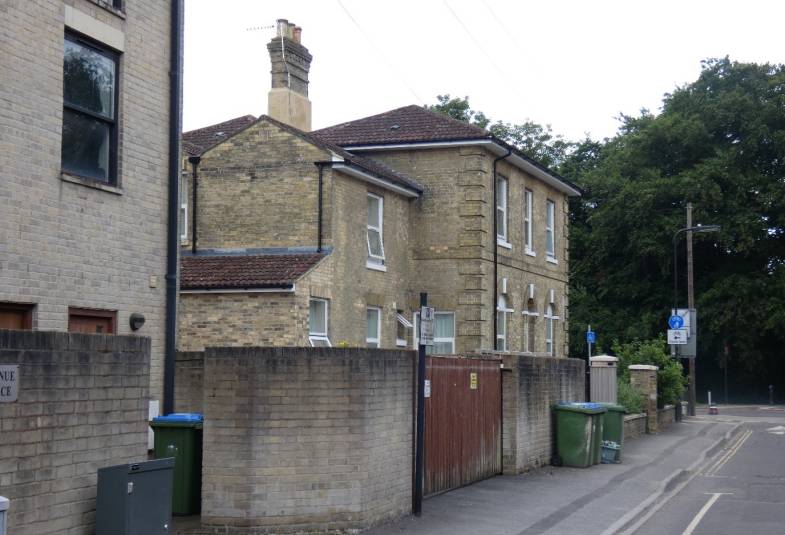21/08/2020
This blog is written by a member of the independent Commission. These views do not necessarily represent the views of the Archbishops' or the Church of England.
The Archbishop of Canterbury’s Housing Commission is encouraging churches to notice gaps in provision, and then help to fill them. In the 1990s, that’s exactly what churches in Southampton did. They realised that for relatively little money they could help a lot of people at risk of homelessness, by setting up the Southampton Churches Rent Deposit Scheme.

Image: HMOs in Southampton. Image courtesy of Sue Hill, Avenue St Andrew’s URC.
They do this through both cash and ‘deposit bonds’ – legal contracts which last six months during which the charity promises to cover any costs incurred. Generally, their clients don’t damage their homes and so the deposit is returned in full to the charity, meaning it can be used again to help another client. But, if they have to pay out, they don’t begrudge this, as they see it as part of working with those who are most in need.
There are all sorts of reasons people use the scheme, but the most common are relationship breakdown, job loss and section 21 (‘no fault’) evictions, leading to people either sofa surfing or sleeping on the street. The churches have a partnership with Southampton City Council’s housing department and street homelessness team. Under the Rough Sleepers Initiative, Homelessness Officers help clients find accommodation, whilst the Rent Deposit Scheme pays for the deposit.
It’s a truly collaborative affair, bringing different agencies together across Southampton. The United Reformed Church has an annual communion collection for the scheme. The Roman Catholic Church does a big collection every Homelessness Sunday. The Methodist circuit, one year, adopted the Southampton Churches Rent Deposit Scheme as its main beneficiary for fundraising. Since 2013 the council has grant funded the Scheme, which allowed them to offer cash deposits for the first time. As a result, the Scheme’s work has expanded rapidly. They have recently been able to fund 79 deposits in a year, 14 of which were to people who were sleeping rough.
An Iranian couple who came to the UK seeking asylum were granted refugee status, but they were given only one week to find somewhere to live before they had to leave their Home Office accommodation. They hadn’t been able to get work or benefits until their status was confirmed, so they had no money saved up. The churches provided a £500 deposit to help them get a flat.
It’s vital to help people when they’re on the street, but stories like this show that it’s better to make sure they don’t get there in the first place. This model is simple, it’s effective, and the value of an expired deposit bond is available for a new client. What more could you want from a church-run social project?
Notes:
- These deposit bonds are offered for a period of six months, during which the residents can save up their own deposit – this is crucial to allow people to build up this capital. If they haven’t quite made it, landlords may let them stay on without a full deposit because they’ve proved to be reliable tenants.
- The idea for the scheme came from Avenue St Andrew’s URC, who fundraised internally before approaching other churches to work together.
- Because of the rapid increase in the number of clients they are helping since being funded by the council, and accompanying staffing needs, the Trustees (representing six churches in Southampton) are now looking at different models of governance for this scheme.